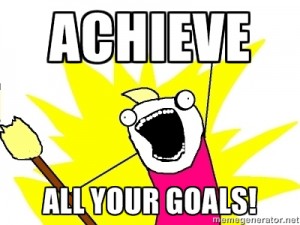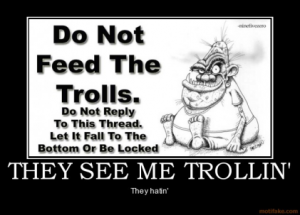 I just got an email from Bill Harris of Holosync fame… A man I despise. He is hawking a book and a woman called Dawn Clark, who wrote a book that is right up my alley: change your dna something or another to make money. ((Jumpstart your wealth gene.))
I just got an email from Bill Harris of Holosync fame… A man I despise. He is hawking a book and a woman called Dawn Clark, who wrote a book that is right up my alley: change your dna something or another to make money. ((Jumpstart your wealth gene.))
So I went to the Dawn Clark’s site, watched her on a video, listened to her voice, and here is my “review”: the woman’s vibration is 100. The truth value of she says is 1%, so 99% is a lie.
She is talking about stuff she knows nothing about.
If and when you are a fraud, you make your success with teaching people stuff you cannot do. Don’t want to do. Have never done.
You make your followers, buyers into suckers.
For one reason or another January and it seems February centers around money issues for people… It’s not an accident that this showed up in my inbox. MindValley is pushing fraudulent products more than ever. Nowadays they email every day, sometimes twice a day.
What they are working on, what their “trick” is is this: they ramp up your desire… until you find yourself in the desire trap.
When you are in the desire trap your intelligence plummets. You see what you want with your mind’s eye and you can’t hear that it’s a picture, that it’s not reality.
You jump. And even if you intellectually know you are in the desire trap, you cannot resist. You listen to everything as proof that in fact you can have what you already feel you have in your mind. You did the work… the work these fraudsters tell you to do: imagine… if it didn’t hurt, I would laugh.
Are you a sucker? 8 secrets writers use to trick the smartest readers into selling their shittiest ideas, products, stuff. (link to the original article)
Hello, dear reader.
Are you a sucker ? Do you click on random links only to be let down, or alternatively suckered into buying some worthless crap?
 Do you find yourself nodding? Many of the smartest people have been tricked, time and time again, into believing, falling for junk.
Do you find yourself nodding? Many of the smartest people have been tricked, time and time again, into believing, falling for junk.
 The headline that sells the stuff is to blame… and of course your propensity to not think… but that’s another story.
The headline that sells the stuff is to blame… and of course your propensity to not think… but that’s another story.
The headline is an advertising on its own right, that suckers you into reading the whole thing. That is its whole reason d’etre, reason to be.
This headline ad is put all over front pages, in your social feeds, on the top of emails as a subject line.
A cleverly crafted headline creates in you an irresistible desire to click, right now.
They want your clicks. If you don’t click, they won’t sell.
Your clicks mean money, fame, fortune, for the person who wrote the ad!
 To get your clicks, ad writers have many crafty techniques for suckering you into clicking and then buying their stuff.
To get your clicks, ad writers have many crafty techniques for suckering you into clicking and then buying their stuff.
Want to know their tricks and techniques?
I’ll show you eight secrets that the best marketeers use to trick even the smartest of you into clicking… and clicking… and clicking… and clicking…
 1. They Explain something.
1. They Explain something.
The best headlines tap into an emotion. The easiest way to reach your emotions is through your mind’s infinite desire to know everything… Anything that begins with ‘why’ or ‘how to’ tap into a pretty good one: curiosity.
Don’t you want to know why or how something works?
OK, you might know.
But even if you do, is there something in the article that you don’t know? The MIND wants to know…
The more gossipy the better…
The more outlandish the better…
so you Click and read the article! So you can fill your mind with more useless knowledge…
 2. They Ask a question.
2. They Ask a question.
A good question creates an sense of curiosity.
A great question taps into your fears; usually the fear of loss, or the fear of missing out.
Your health matters. Should you be listening to rap music?
The widespread use of questions has lead to a well-known principle known as Betteridge’s law of headlines, Davis’ Law, or just the Journalistic Principle: “Any headline which ends in a question mark can be answered with the word no“.*
So next time, go ahead and ask yourself the question.
Is the answer no?
Maybe you don’t need to read the article.
 3. They Add a number.
3. They Add a number.
You love lists. Writers love lists. Everyone loves lists!
Lists are easy to read, they are bounded, and they provide a sense of organization.
It gets better for writers. List let you write with requiring a cohesive point. Just collect several random points, and write them down with numbers next to them!
Sounds easy to write? Yes, sir. We’ve got a good one going right here.
 4. They Overreach.
4. They Overreach.
Have you noticed that many articles don’t just guarantee interesting information?
No, they guarantee success. They guarantee all of their dreams… and then some.
Writers know that if you are going to sell something, you might as well make it a strong well. People won’t realize what’s up until after the sell anyways.
Next time, don’t be a sucker. Recognize.
 5. They use negativity.
5. They use negativity.
Another good way to tap into emotions is to be negative. There are many ways to be excessively negative. The easiest way is to just add a swear word into a headline.
Want proof that negativity works? Just check out the trolls on any internet forum.
Writers use the same troll tricks. Don’t feed them.
 6. They Add unnecessary adjectives and qualifiers.
6. They Add unnecessary adjectives and qualifiers.
There are all kinds of ways that writers use unnecessary adjectives and qualifiers.
They add adjectives like ‘smart’ or ‘stupid’. The word ‘smart’ will get your reading to figure out why you are so smart. The word ‘stupid’ will get you reading to figure out why you aren’t stupid.
Did you see that? It works either way!
And there is more.
They may also use extra qualifiers tell you want to think or do. Have you seen headlines with “things you need to know” or “you must read” randomly in the title? It is because once they tell you to, you magically will want to.
Beyond that, any word that increases curiosity is good. For example, ‘secret’ is good. Once you read it, you have to know the secret.
 7. They Invoke authority.
7. They Invoke authority.
People trust authority. Even if the writer isn’t an authority, someone is.
Now, this authority could be a person. It is easy to name drop a famous CEO, actor, rock star, celebrity, or any other big figure. This can work pretty well.
But there is better. We have a higher authority, and that is SCIENCE.
Have you seen all those articles these days which are “backed by science”? Or “backed by psychology”? Writers do this because it works really well.
The infamous Migram experiments have shown how susceptible people are to authority figures. That includes the authority invoked within headlines. Once you see the authority, it is trusted, and the content in the article must be legit.
Tread carefully when you see this.
Sometimes this is something interesting there. Other times, you will just a crappy quote, graph, or citation. Or even worse, you may only get a link to a Wikipedia article about science.
8. They Combine these tricks together.
All of the tricks work. And they work even better together.
That’s it folks.
Now you know.
Next time you read a headline, make sure nothing fishy is going on.
You can stop being this guy:
Do you know any other dirty secrets used to write catchy headlines?
Make the world a better place and share them in the comments!
Read the original article: Are you a sucker? You most certainly are…
